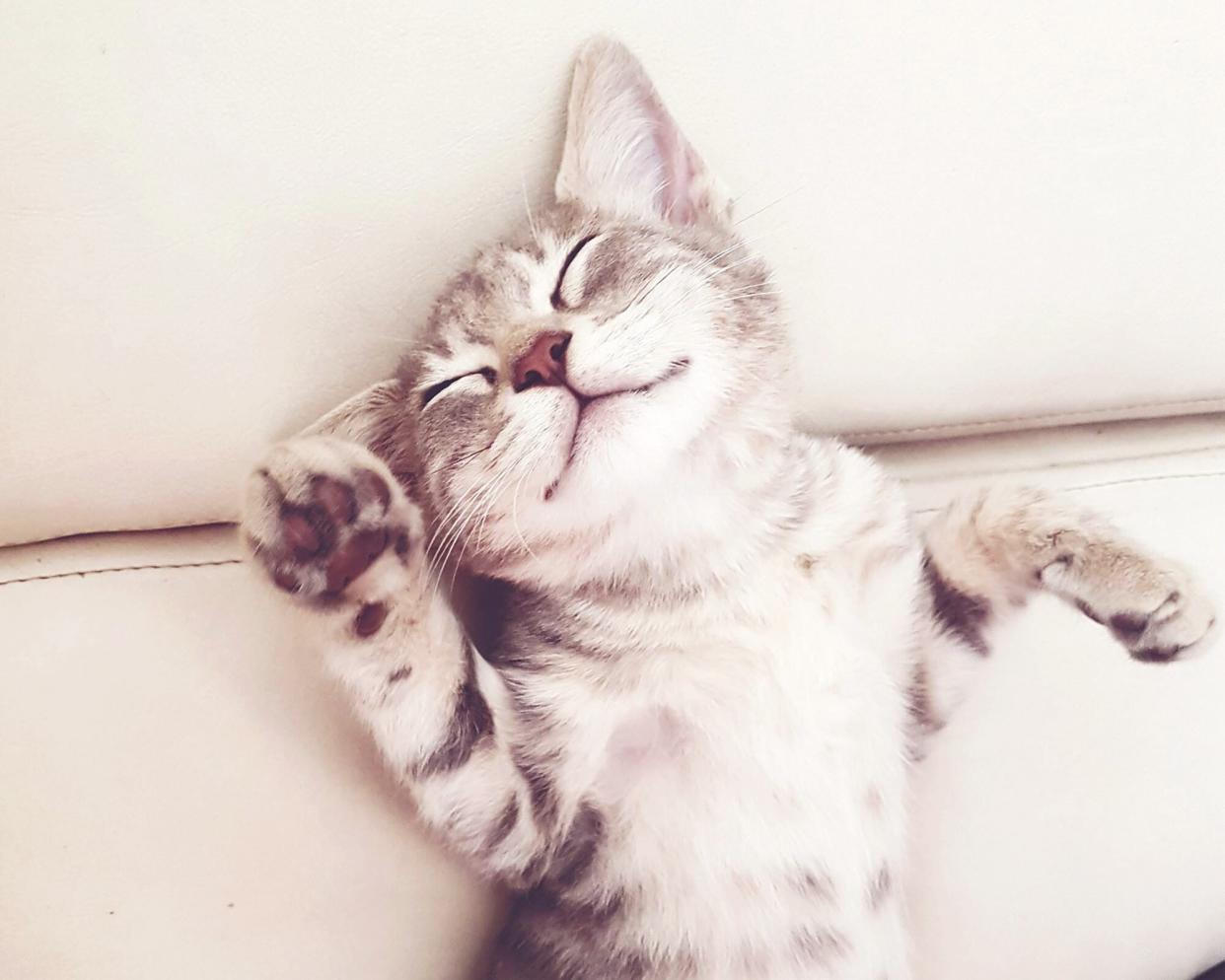Are Cats Ticklish? Maybe—But This Doesn't Mean They Enjoy It

Eliana Halloun / EyeEm / Getty
We've all experienced it. While giving your kitty some pats, rubs, and scritches, you suddenly get "The Paw": A cease-all-motion indicator that's either a gentle touch on the hand that asks you to stop, or a swift swat which really means stop right now.
It's easy for us to believe our furry friends love all of our attention, but just like humans, they have individual preferences. Tickling, for example, is a sensation that can be enjoyable for some people but annoying for others. So, are cats ticklish?
"Cats can be ticklish but, since they don't laugh, they show it in different ways," says Angelica Dimock, DVM, managing shelter veterinarian at Animal Humane Society.
How Are Cats Ticklish?
Like most mammals, cats react to two forms of ticklish sensations. One is knismesis, or "the moving itch"—a light touch that raises goosebumps or causes our skin to twitch. This natural response also alerts us to something on our skin that needs to be removed. The other is gargalesis, which is our involuntary reaction to being poked and prodded by another person. Being tickled actually stimulates both pain and pleasure nerve receptors, which is why some people—and cats!—aren't always fond of it.
"Cats are extremely sensitive to touch, but a little tickle on the head or face may be welcomed by some. I think what cats are responding to is a massaging touch on their cheeks, head, or back," says Renee Rucinsky, DVM, DABVP(F). She's president-elect of the American Board of Veterinary Practitioners and owner of Mid-Atlantic Cat Hospital and Mid-Atlantic Feline Thyroid Center, both in Queenstown, Md.
Cheek and head rubbing mimics the bonding behavior that cats do with each other, and it's often why cats headbutt their humans to "mark" them as one of their own. Rucinsky adds that tickling around the toe beans or in the armpits isn't really a thing for cats, but she's known some who like their bellies rubbed.
RELATED: Everything You Need to Know About Cat Body Language
Does Your Cat Like to Be Tickled?
Knowing how to properly pet your cat is a valuable form of communication and helps strengthen the relationship between you. Like the "stop" swat, Dimock adds that kitties have other signals that tell you loud and clear they're not happy with tickling or touching certain parts of their body. These include:
Sending their ears back
Wide eyes
Freezing up
Vocalizing
Now, if your furball enjoys little tickles, they may seem relaxed and:
Nudge your hand if you stop as a way to ask for more
Knead with their front paws
Make soft movements with their tail
"Most cats are pretty clear about what touch they want. You just have to listen—and respect!" Rucinsky adds.
When Is Your Cat's Touch Reaction a Health Issue?
"Sometimes when we touch cats, especially near the base of their tails, they'll have a reaction that involves nibbling the air or licking their own forearms. Some cats' skin will ripple—like it tickles," Rucinsky says. "People frequently demonstrate this to me during annual exams and think it's hilarious. However, many times it's a sign something more serious is going on."
Felines with fleas or allergies often have this response because they itch. Additionally, overweight cats have difficulty cleaning themselves and may react in this way because it's frustrating to them when we touch areas they can't reach.
"The most serious other issue for rippling skin can be a condition called feline hyperesthesia syndrome—I sometimes describe this to cat owners as the 'little alien disease' or the 'ghost disease'," Rucinsky says. "Cats act like they think invisible creatures are touching them, and it can be quite disturbing to them. This condition is along the lines of a seizure disorder and may require medication to help make the cat more comfortable."
In severe cases, cats can actually harm themselves trying to get rid of the sensation, often by excessive digging and scratching at their skin. They might also suddenly bite and drool or urinate a lot. So if you notice these types of reactions, arrange for a veterinary checkup right away.
RELATED: Are Dogs Ticklish—and Should You Tickle Them? Here's What a Behavior Expert Recommends

